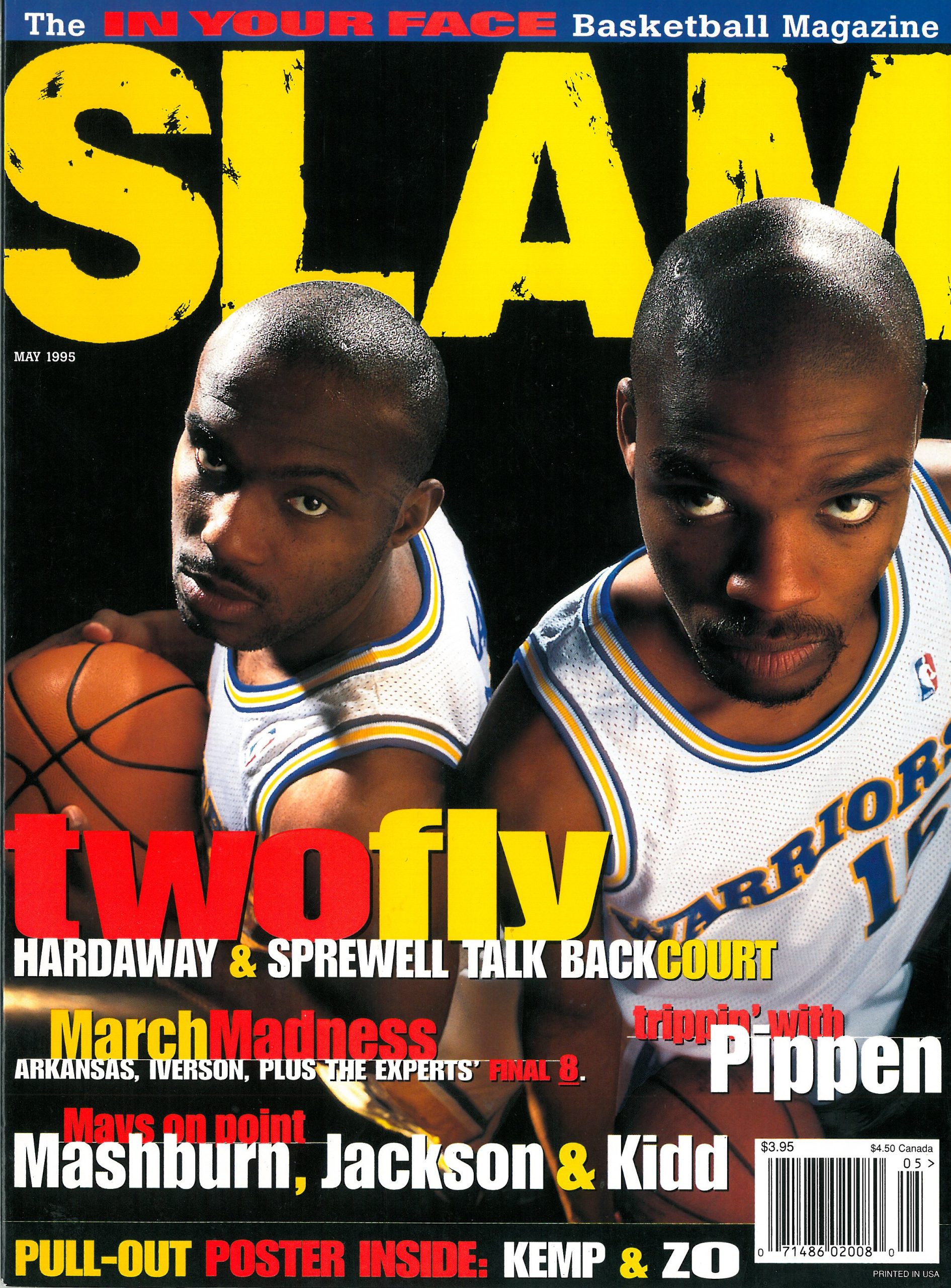The SLAM Archives: SLAM 5 Featuring Tim Hardaway, Latrell Sprewell From May of 1995
This story first appeared in SLAM 242.
If you’re a true SLAM head, then you’ll have keenly observed that we drop team/multiple-player covers with a consistent frequency these days. Sure, some of our most iconic covers have been solo joints, but love simply has to be shown to our first duo.
Leading up to 1995, the Warriors were a team who’d had some great players, from the backcourt trio of Tim Hardaway, Mitch Richmond and Chris Mullin (aka Run TMC) to No. 1 draft pick Chris Webber, who would win Rookie of the Year. Which leads us to the cover of SLAM 5, and the unforgettable personalities of Tim Hardaway and Latrell Sprewell.
Spree was a ferocious dunker. He threw it down as though the rim owed him money, insulted his mother and looked at his girl all at the same time. Tim Hardaway was the OG ankle-breaker, putting dudes on skates and then telling them about it. As a duo, they should’ve been primetime, top-10 plays of the week type of stuff, but unfortunately, it didn’t quite work out that way.
Still, the cover of SLAM 5 remains historic for a couple of reasons. It was the first non-solo cover. In addition, Tony Gervino, SLAM’s editor at the time, once told me that the two weren’t on speaking terms when the cover was shot. Mean-mugging became a staple for players on SLAM covers after this, but in this case, the disgruntled faces were real. The cover was a trendsetting blueprint for covers in the years to come—namely, players not smiling. [FYI, we’ve never directed players to not smile! It’s just always been how they wanted to be photographed.—Ed.]
It’s crazy to think of the Golden State Warriors as a bottom-of-the-League team, but this is what they would be for the (almost) 10 years that followed this cover (an apparent SLAM curse was whispered about during this era, too). Both Warriors and multiple-player SLAM covers are common these days, as are Dubs championships. I hope that conversations between Spree and Hardaway happen more often than they used to do.
